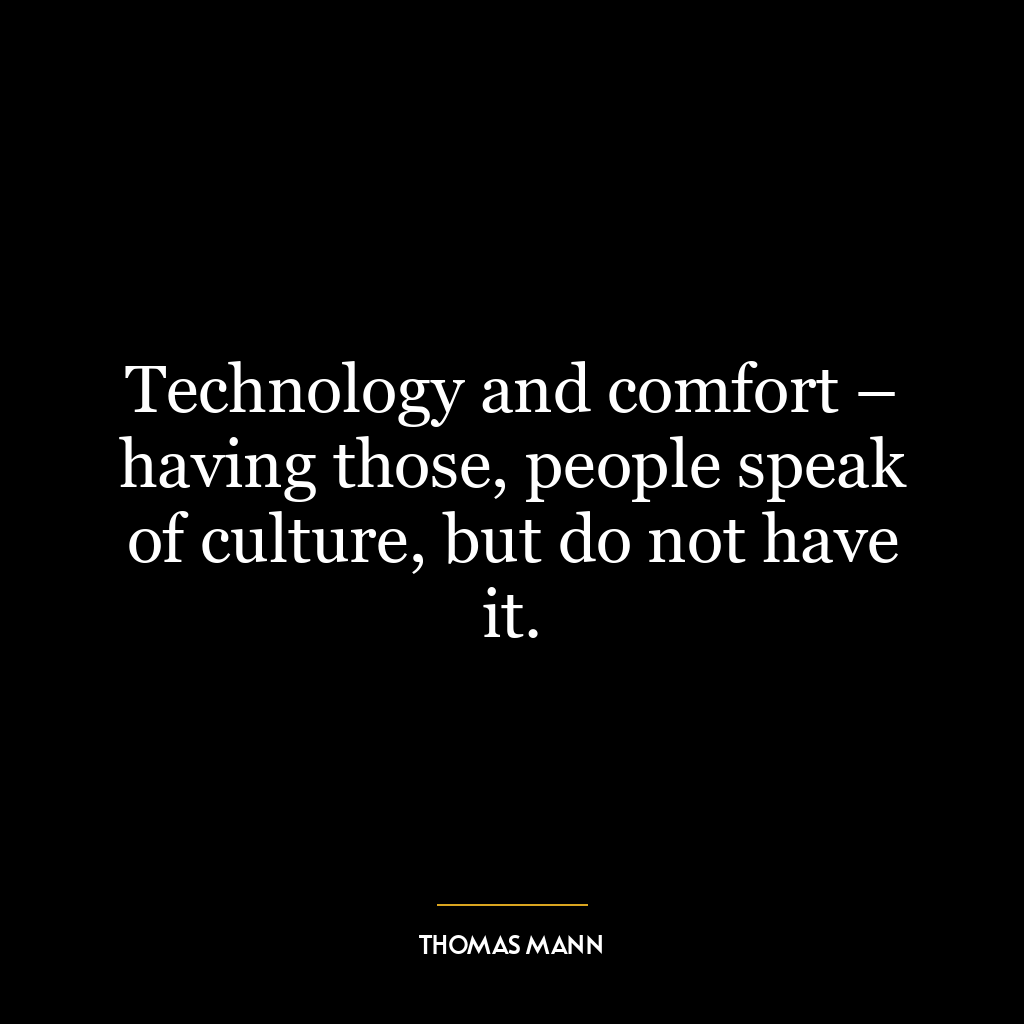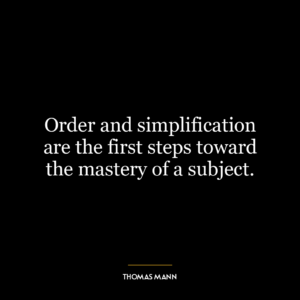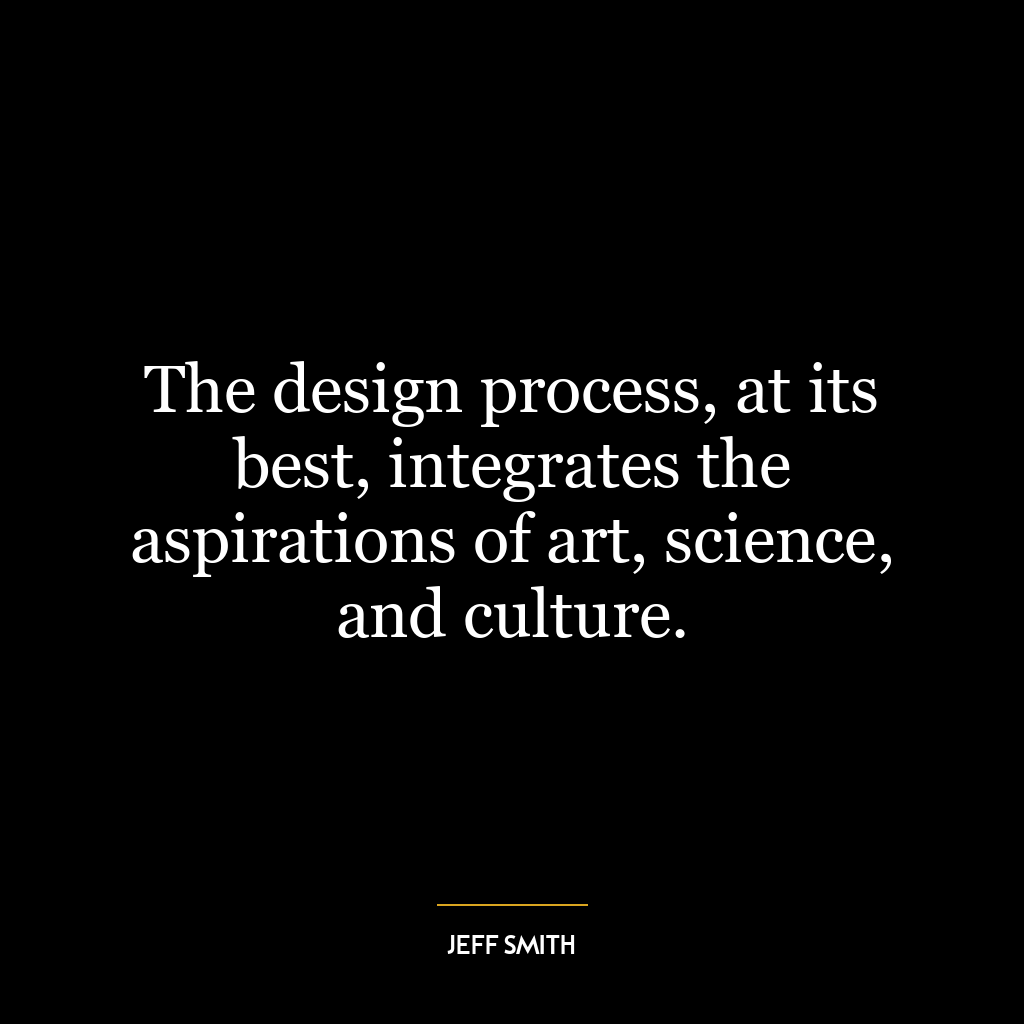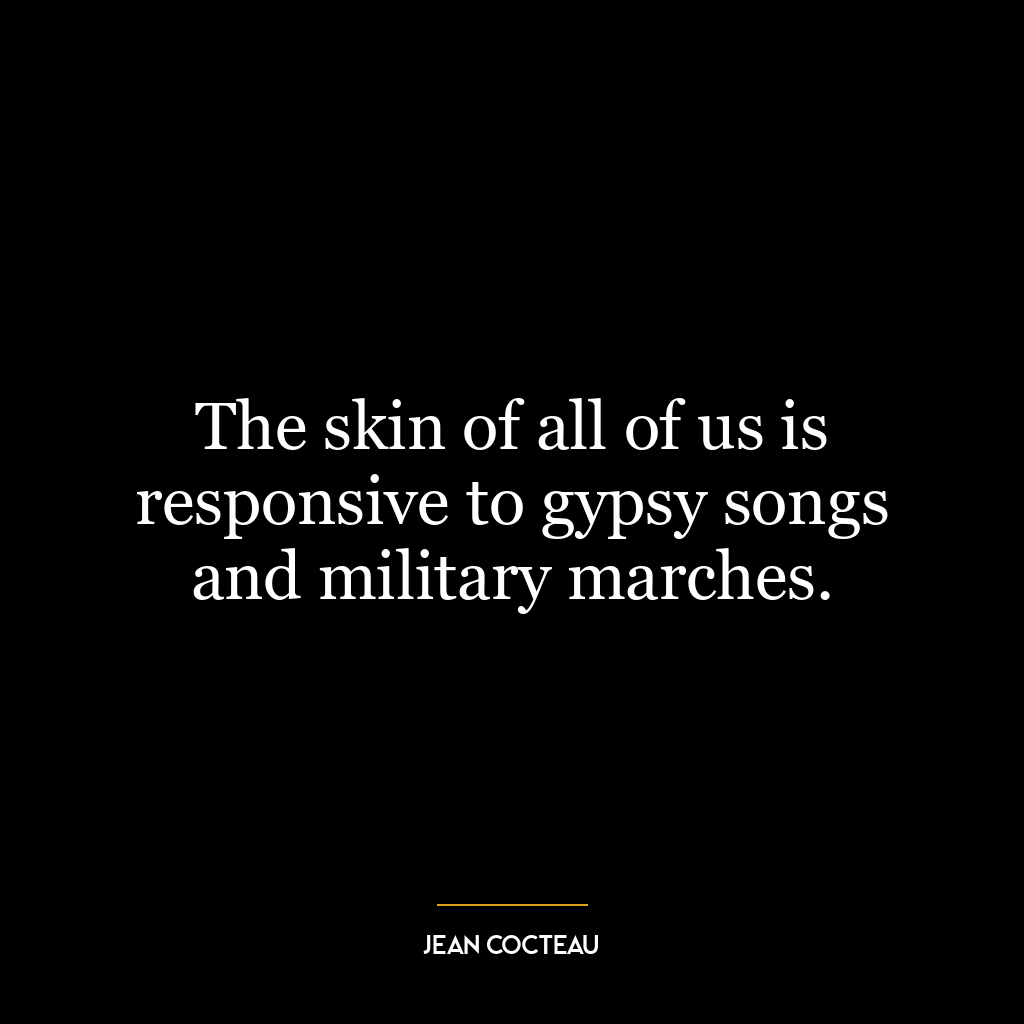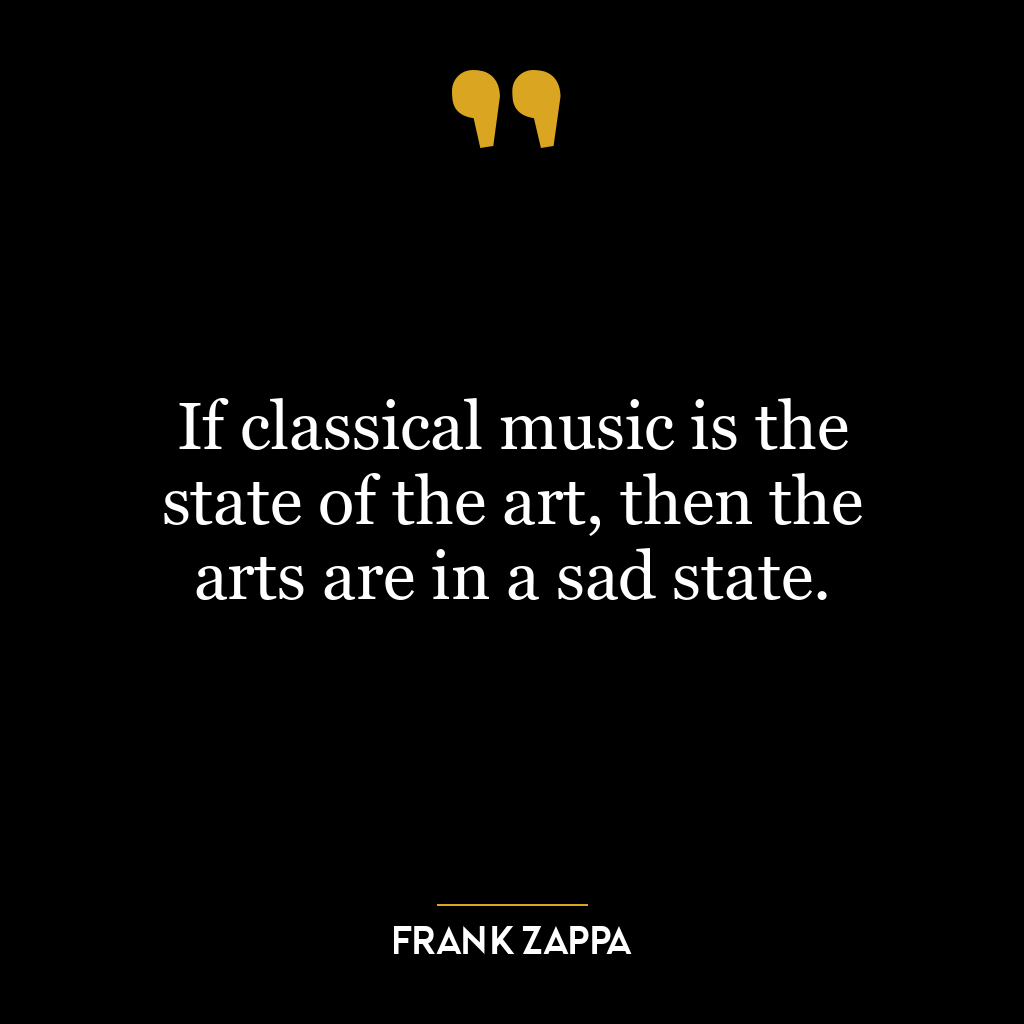This quote suggests that the presence of technology and comfort doesn’t automatically equate to possessing culture. It’s a critique on the superficiality of modern society, where people often mistake material wealth and convenience for cultural sophistication or intellectual depth.
In this context, ‘technology and comfort’ represent the materialistic aspects of life. It’s the tangible, physical conveniences that we often associate with progress and development. On the other hand, ‘culture’ stands for the intellectual, spiritual, and emotional aspects of human existence that are often intangible and abstract.
The quote implies that people may be surrounded by technology and live in comfort, but it doesn’t necessarily mean they possess culture. It’s a reminder that culture is not about what you own or how comfortably you live, but rather about how you think, feel, and perceive the world around you.
Applying this idea to today’s world, we can see that despite the rapid advancements in technology and the increasing comfort of our lives, there are still significant cultural gaps. For instance, the spread of misinformation on social media, the polarization of political ideologies, and the prevalence of shallow, sensationalist content are all indicative of a society that is rich in technology but poor in culture.
In terms of personal development, this quote encourages us to look beyond material possessions and physical comfort in our pursuit of personal growth. It suggests that true development comes not from accumulating wealth or living in luxury, but from cultivating our minds, nurturing our spirits, and enriching our understanding of the world. It’s a call to focus on intellectual and emotional growth, to seek wisdom and understanding, and to appreciate the beauty and complexity of human culture.

